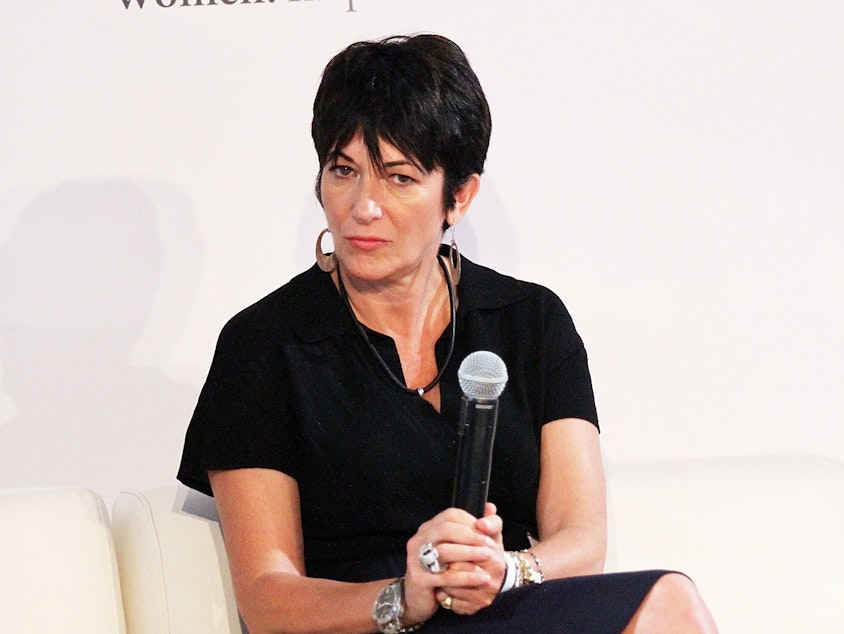Opening statements are set to begin in the sex trafficking trial of Ghislaine Maxwell

Opening arguments are expected to begin Monday in the federal sex trafficking trial of Ghislaine Maxwell, the once prominent socialite who stands accused of helping disgraced financier Jeffrey Epstein exploit and abuse multiple girls, including one as young as 14, over nearly a decade.
In the aftermath of Epstein's apparent death by suicide in 2019, the highly anticipated trial is seen as the government's best, and perhaps last, opportunity to secure a conviction for his alleged crimes.
Attorneys are expected to present their opening statements as soon as a jury is empaneled.
What are the criminal charges against Maxwell?
Maxwell, 59, is being tried on multiple trafficking-related counts, including enticing minors to travel to engage in illegal sex acts and sex trafficking a minor. The indictment also accuses her of conspiracy, including using one of Epstein's alleged victims to "recruit other girls to engage in paid sex acts with Epstein, which she did."
Sponsored
Maxwell has pleaded not guilty.
The government has sought to portray Maxwell as the chief coordinator of a sadistic trafficking ring that victimized teenage girls for Epstein's benefit.
Prosecutors for the U.S. Attorney's Office for the Southern District of New York allege that from around 1994 until at least 2004, Ghislaine "assisted, facilitated, and contributed to Jeffrey Epstein's abuse of minor girls by, among other things, helping Epstein to recruit, groom, and ultimately abuse" their victims.
How did the alleged sex trafficking ring work?
Maxwell worked to help Epstein gain control over his victims, the government alleges, by identifying attractive minors and young women and asking them about their lives, their schools and their families. She would then offer them a job: providing a massage to Epstein.
Sponsored
Once they developed a rapport, Maxwell would try to "normalize sexual abuse," prosecutors say, by talking about sexual topics and undressing in front of them. In more extreme cases, she would be in the room when Epstein sexually abused girls in order to help "put the victims at ease," according to the government.
The government's case focuses on a lengthy period in which Maxwell "was in an intimate relationship with Epstein" and was being paid by Epstein to manage his properties. It zeroes in on the abuse of four unnamed victims — three of whom prosecutors say Maxwell recruited from 1994 to 1997 — as well as a 14-year-old girl whom the government says was groomed to engage in sexual acts with Epstein between 2001 and 2004.
During the trial, the victims and others can use pseudonyms to protect their privacy, under a ruling by District Judge Alison J. Nathan.
The sexual abuses allegedly took place at several of Epstein's properties, including his home on Manhattan's Upper East Side; an estate in Palm Beach, Fla.; a ranch in Santa Fe, N.M.; as well as at Maxwell's home in London, according to court documents.
Will accusations against powerful men be heard?
Sponsored
Virginia Giuffre, Maxwell and Epstein's most visible accuser who has said their alleged misdeeds also included procuring under-age girls for Epstein's wealthy and powerful friends, is not expected to testify in the trial.
In her deposition that was made public last year, Giuffre named a number of high-profile men with whom she said she was told to have sex, including Britain's Prince Andrew, former U.S. Sen. George Mitchell and attorney Alan Dershowitz. All three men have denied the allegations.
By excluding Giuffre from the case, prosecutors are dodging a potential risk. Records, photos and witness statements have supported her claims, but as Giuffre herself has acknowledged, there have been inconsistencies in her timeline of key events.
Prosecutors will draw on Maxwell's own records — her "black book," a record of friends and contacts. The FBI acquired a copy of the book in 2009, when Epstein's former butler, Alfredo Rodriguez, attempted to sell it.
The prosecution has said it only plans to use limited portions of the book. But they also say testimony during the trial will prove that the book belonged to Maxwell and that it contains "compelling evidence of her guilt," according to a recent court filing. [Copyright 2021 NPR]

